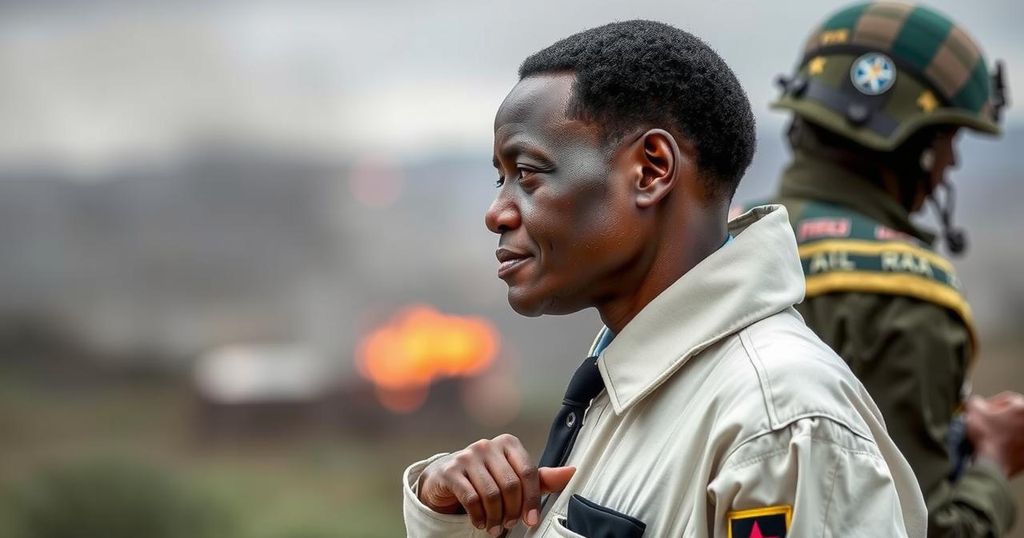Kagame Denies Rwanda’s Involvement With M23, Points to Uganda’s Role

Rwandan President Paul Kagame denies allegations of his country supporting the M23 rebel group, asserting that the group’s main fighters originated from Uganda. In response to a UN report accusing Rwanda of military involvement, Kagame emphasizes the historical context of M23’s formation and calls attention to the ethnic biases influencing these accusations. He critiques the international community for failing to tackle underlying regional issues, particularly the FDLR militia’s longstanding presence in the DRC.
In recent statements, Rwanda’s President Paul Kagame has firmly denied allegations of Rwandan support for the M23 rebel group in the eastern Democratic Republic of Congo (DRC), attributing the origins of M23 primarily to Uganda. This response follows a contentious United Nations report alleging military cooperation between M23 and Rwandan Defense Forces (RDF), which Kagame disputes. He explains that many M23 fighters were refugees who had previously been disarmed and underscores that the conflict stems from a group physically located in Uganda, not Rwanda.
President Kagame stressed the historical context of the M23 insurgency, noting that after the group was disbanded in 2012-2013, members fled primarily to Uganda. Asserting that these individuals did not instigate the fighting, he remarked, “The fighting was started by the main group that was in and from Uganda.” Kagame also highlighted the longstanding persecution faced by Rwandophones in the DRC, attributing the ethnic bias in accusations against Rwanda to these tensions. He criticized the international community for failing to resolve ongoing issues, particularly the presence of the FDLR militia, which he argues has been overlooked for decades.
The UN report presents a contrasting narrative, indicating the involvement of Rwandan military capabilities and advancements aiding M23 in securing contested territories, including valuable mining sites. Kagame dismissed these claims as an effort to distract from the DRC’s internal governance flaws. He maintained that the DRC’s leadership has evaded accountability, emphasizing the need for the DRC government to take responsibility for its problems rather than blaming neighboring states.
As tensions remain high, M23’s territorial expansion continues despite international scrutiny. The complexity of the situation underscores the interplay of historical grievances, ethnic identities, and geopolitical dynamics in the region.
The ongoing conflict in the eastern DRC involves multiple armed groups, with M23 being one of the most prominent. The UN has reported on various instances of violence and military collaboration among these groups, attributing part of the conflict to external influences, particularly from Rwanda. Rwandan President Paul Kagame has historically denied these claims, often citing the role of Ugandan groups and the ethnic struggles of Kinyarwanda speakers in the DRC. The region has been marred by instability since the Rwandan Genocide in 1994, leading to continued humanitarian crises and international intervention efforts that have largely been perceived as inadequate.
In summary, President Paul Kagame articulates a strong denial of Rwanda’s involvement in supporting the M23 rebel group, attributing the group’s origins to Uganda and emphasizing the complex ethnic dynamics in the region. He criticizes the international community’s approach to the ongoing conflict in the DRC, highlighting the failures in addressing deeper-rooted issues, such as the presence of the FDLR. As the situation evolves, tensions between Rwanda and the DRC continue to pose significant challenges for regional stability.
Original Source: chimpreports.com








